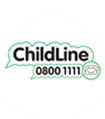Free School Meals & Pupil Premium
Who is entitled to free school meals?
Parents do not have to pay for school lunches if they receive any of the following:
- Universal Credit - your household income must be less than £7,400 a year (after tax and not including any benefits you get)
- Income Support
- Income-based Jobseeker's Allowance
- Income-related Employment and Support Allowance
- Support under Part VI of the Immigration and Asylum Act 1999
- The guaranteed element of state Pension Credit
- Child Tax Credit (provided you're not also entitled to Working Tax Credit and have an annual gross income of no more £16,190)
- Working Tax Credit run-on - paid for four weeks after you stop qualifying for Working Tax Credit
Children who get paid these benefits directly can also get free school meals.
The school uses a cashless catering system in the dining room. This allows your son to purchase their free school meal in exactly the same way as any other pupil.
How to apply
Students, Parents, and Carers can apply for free school meals online at the Lincolnshire County Council Parent Portal
For more information, please e-mail the Lincolnshire County Council Customer Service Centre or call on 01522 782030.
What is the Pupil Premium?
The school receives a Pupil Premium payment for students who are eligible for free school meals, or have been eligible in the past 6 years; students who have been adopted from care or have left care and children who are looked after by the local authority. This additional funding will be invested in your child to help them achieve more at school.
We provide assistance with uniform, including sports kit and support with trips. If eligible for free school meals, you may also be entitled to claim other forms of assistance.
More information and how to apply online for Free School Meals is available on the Lincolnshire County Council website. Please feel free to contact the school with any questions you have.
Pupil premium strategy statement
The Education Endowment Foundation state:
“Good teaching is the most important lever schools have to improve outcomes for disadvantaged pupils”
School Overview
| Metric | Data |
|---|---|
| School name | The King’s School |
| Pupils in school | KS3 and 4 – 920, total pupils 1200 |
| Proportion (%) of pupil premium eligible pupils | 8% |
| Academic year or years covered by statement | 2024/25 – 2026/27 |
| Date this statement was published | 07/05/2024 |
| Date this statement will be reviewed | 31/05/2025 |
| Statement authorised by | Mr S Pickett |
| Pupil premium lead | Mr S Pickett |
Funding Overview
| Detail | Amount |
|---|---|
| Pupil premium funding allocation this academic year | £67,275 |
| Recovery premium funding allocated this academic year | £17,940 |
| Pupil premium funding carried forward from previous years | £0 |
| Total budget for this academic year | £85,215 |
Disadvantaged Pupil Performance Overview for Last Academic Year of Public Examinations
| Progress 8 | 1.31 |
| English Baccalaureate entry | 30% |
| Attainment 8 | 70.2 |
| % Grade 5+ in English and maths | 100% |
Strategy Aims for Disadvantaged Pupils
Our intention is that all pupils, irrespective of their background or the challenges they face, make good progress and achieve high attainment across the curriculum, facilitating them moving to Level 3 Apprenticeships and University Entry.
We will consider the challenges faced by vulnerable pupils, such as those who have a social worker and young carers. The activity we have outlined in this statement is also intended to support their needs, regardless of whether they are disadvantaged or not.
High-quality teaching is at the heart of our approach, with a focus on areas in which disadvantaged pupils require the most support. This is proven to have the greatest impact on closing the disadvantage attainment gap and at the same time will benefit the non-disadvantaged pupils in our school. Implicit in the intended outcomes detailed below, is the intention that non-disadvantaged pupils’ attainment will be sustained and improved alongside progress for their disadvantaged peers.
Our approach will be responsive to common challenges and individual needs, rooted in robust diagnostic assessment, not assumptions about the impact of disadvantage. The approaches we have adopted complement each other to help pupils excel. To ensure they are effective we will:
- ensure disadvantaged pupils are challenged in the work that they are set
- act early to intervene at the point need is identified
- adopt a whole school approach in which all staff take responsibility for disadvantaged pupils’ outcomes and raise expectations of what they can achieve
Intended Outcomes
| Aim | Target | Target date |
|---|---|---|
| Progress 8 | Achieve top quartile for progress made by disadvantaged pupils amongst similar schools | September 2028 |
| Attainment 8 | Achieve top quartile for progress made by disadvantaged pupils amongst similar schools | September 2028 |
| % Grade 5+ in English and maths | Achieve average English and mathematics 5+ scores for similar schools | September 2028 |
| Other | Maintain above the national average for attendance. | September 2028 |
| Ebacc entry | Better national average EBacc entry for all pupils | September 2028 |
Teaching Priorities for Current Academic Year
| Measure | Activity |
|---|---|
| Priority 1 | Using and embed Accelerated Reader across Year 7 & 8 to ensure that reading is progressive and informed by ability. |
| Priority 2 | Intervention activities programme including online tutoring from former King's students to support academic progress. |
| Priority 3 | Improve advertising profile and 'reach' to secure high quality teacher recruitment. |
| Priority 4 | Improved CPD access includes online training packages and materials. |
| Priority 5 | Introduction of a familiarisation programme for Pupil Premium students in Year 6 who are going to complete the 11+ examination. |
| Barriers to learning these priorities address | Retaining key members of the English department. Training in the use of the computer programme Accelerated Reader. Access to the library and software to ensure reading ages are tracked, monitored and catered for. |
| Projected spending | £40,000 |
Targeted Academic Support for Current Academic Year
| Measure | Activity |
|---|---|
| Priority 1 | Literacy interventions across KS3 for disadvantaged pupils making lower than anticipated progress. |
| Priority 2 | Mathematics interventions across KS3 for disadvantaged pupils making lower than anticipated progress. |
| Barriers to learning these priorities address | Low levels of progress in English and Mathematics |
| Projected spending | £22,000 |
Wider Strategies for Current Academic Year
| Measure | Activity |
|---|---|
| Priority 1 |
Providing for the social and emotional well-being of pupils. Disadvantaged students receive vouchers for uniform and sport kit. Vouchers worth £180 are allocated to all FSM, LAC children (given each year in July). A Physical Education bag and Mathematics/Geometry sets are provided. Counselling and Mental Health support. Technology support. FSM meal supplement – 55p per pupil per day. |
| Priority 2 | Money is allocated to support pupils with all educational visits and additional resources such as English texts throughout the year. |
| Barriers to learning these priorities address | Social barriers of financial ability to identify as a King’s student and access to additional extracurricular activities such as Duke of Edinburgh are reduced. |
| Projected spending | £23,215 |
Monitoring and Implementation
| Area | Challenge | Mitigating action |
|---|---|---|
| Teaching | Ensuring enough time is given over to allow for staff professional development | Use of INSET days and additional cover is provided |
| Targeted support | Ensuring enough time for mathematics and literacy intervention | Provide an allocated and monitored English and Mathematics intervention daily. |
| Wider strategies | Review the admissions policy to ensure that Pupil Premium students are treated with equity. | Pupil Premium students have an identified mechanism for admissions. |
Review: Last Year’s Aims and Outcomes
Our assessments demonstrated that pupil behaviour, wellbeing and mental health were significantly impacted during Covid-19 and are not recovering as quickly as nationally suggested. The impact was particularly acute for disadvantaged pupils. We used pupil premium funding to provide wellbeing support for all pupils, and targeted interventions where required. We are building on that approach in our new plan.
| Aim | Outcome |
|---|---|
| Approach to admissions – increasing accessibility | Achieved |
| Ensure that students have equal access to the school curriculum | Achieved |
| Spending on existing/ new staff and administration | Achieved |







